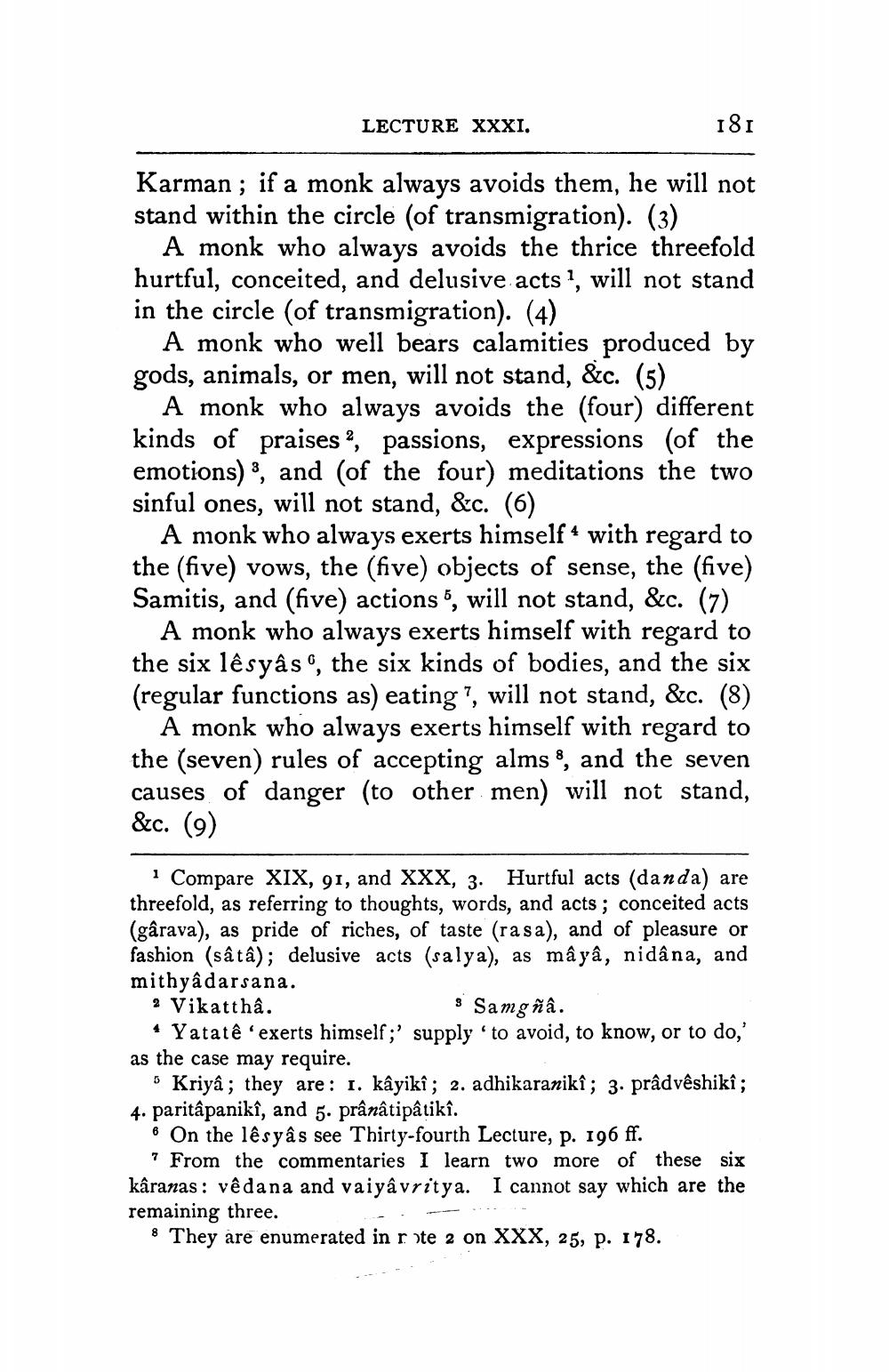________________
LECTURE XXXI.
181
Karman ; if a monk always avoids them, he will not stand within the circle (of transmigration). (3)
A monk who always avoids the thrice threefold hurtful, conceited, and delusive acts!, will not stand in the circle (of transmigration). (4)
A monk who well bears calamities produced by gods, animals, or men, will not stand, &c. (5)
A monk who always avoids the (four) different kinds of praises ?, passions, expressions of the emotions) 3, and (of the four) meditations the two sinful ones, will not stand, &c. (6)
A monk who always exerts himself 4 with regard to the (five) vows, the (five) objects of sense, the (five) Samitis, and (five) actions , will not stand, &c. (7)
A monk who always exerts himself with regard to the six lêsyâs °, the six kinds of bodies, and the six (regular functions as) eating ?, will not stand, &c. (8)
A monk who always exerts himself with regard to the (seven) rules of accepting alms >, and the seven causes of danger (to other men) will not stand, &c. (9)
1 Compare XIX, 91, and XXX, 3. Hurtful acts (danda) are threefold, as referring to thoughts, words, and acts; conceited acts (gârava), as pride of riches, of taste (rasa), and of pleasure or fashion (sâta); delusive acts (salya), as mâyâ, nidâna, and mithyâdarsana. 2 Vikatthâ.
3 Samg ñâ. Yatatê'exerts himself;' supply to avoid, to know, or to do,' as the case may require.
5 Kriyâ; they are: 1. kâyikî; 2. adhikaranikî; 3. prâdvêshikî; 4. paritâpanikî, and 5. prânâtipâtikî.
6 On the lês yâs see Thirty-fourth Lecture, p. 196 ff.
? From the commentaries I learn two more of these six kâranas: vêdana and vaiyavritya. I cannot say which are the remaining three.
8 They are enumerated in rte 2 on XXX, 25, p. 178.




